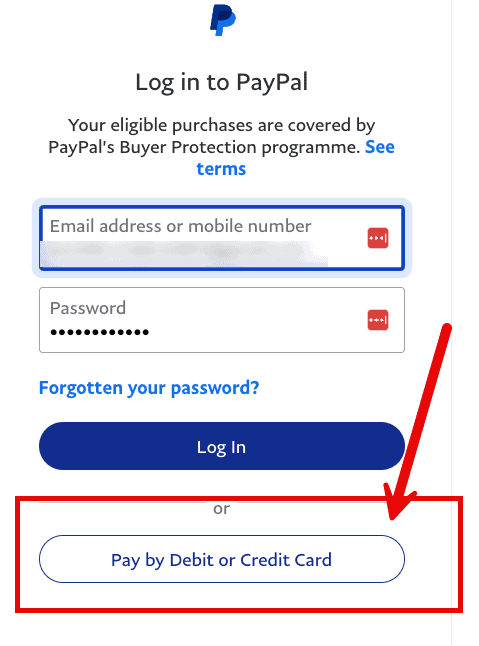Tutorials & useful up-dates on being healthy with Thai Massage.
 Hey folks! In this week’s edition of Ask a Health Coach, Erin is answering your questions about how to offset the effects of a poor sleep routine, dealing with a difficult partner, and which is more important for optimal health: low stress or a Primal diet. Thanks for all your questions. Keep them coming in the comments or over in our .
Hey folks! In this week’s edition of Ask a Health Coach, Erin is answering your questions about how to offset the effects of a poor sleep routine, dealing with a difficult partner, and which is more important for optimal health: low stress or a Primal diet. Thanks for all your questions. Keep them coming in the comments or over in our .
Christopher asked:
Any strategies for countering the detrimental effects of not getting enough sleep? Preferably ones that don’t involve caffeine. My work schedule and family responsibilities are making it difficult, most of the time impossible, to get enough sleep during the week and sometimes on weekends too. I also have to wake up hours before sunrise to get ready for work, and naps during the day are impracticable.
The short answer is, you can’t offset it. No amount of deep breathing, fasting, cold showers, or B3 supplements can trick your body into believing it got a glorious, uninterrupted night of shut eye when you regularly don’t get enough sleep.
These approaches just mask the damage. The body is miraculous, and it can adapt to a single night or two of staying up too late working or parenting or even *gasp* having fun, but a steady stream of sleep deprivation is setting you up for more issues down the road:
Long-term effects of not getting enough sleep:
- Memory loss
- Weight gain
- Depression/anxiety
- Hypertension
- Diabetes
- Compromised immune system
The list goes on. And really, you don’t want to see where it goes. That’s why instead of trying to off-set your non-optimal sleep schedule, work on improving it – even if that means taking small steps at first. And since it sounds like the amount of sleep you get each night is non-negotiable, going to bed earlier or sleeping in is totally off the table for you. That means, instead of focusing on quantity, .
You’re not alone in managing exhaustion day-to-day. Most of my clients are busy working moms and dads who barely have time to think straight, let alone have a cushy after-hours routine. But there are some things you can do to move the needle on your sleep quality. Here are three practices I swear by, both for my clients and myself:
- Turn off devices 1-2 hours before bed and if you can’t swing that, wear blue light blocking glasses. These glasses filter out those blue-violet light rays emitted from digital screens, which causes eye strain, headaches, and disruptions in the sleep cycle. And if you keep your phone near your bed (which I don’t recommend), don’t be tempted to check email in the middle of the night if you wake up.
- Remove or cover up any sources of light in your bedroom. Even tiny ones can impact your sleep, so use black-out blinds over your windows and duct tape over any blinking lights in the room. If that’s not possible, get yourself a sleep mask.
- Keep the temperature low, ideally at 60-67?F (15.6?-19.4?C). When your body warms up at night (which it always does) it interrupts your sleep, so turn the thermostat down before going to bed or consider getting a – one of my favorite health gadgets ever!
P.S. The Primal Health Coach Institute team is hosting a next week: 3 Things To Look For In A Health Coaching Program. What are the three things? 1) Health Science & Nutrition Education; 2) Health Coaching & The Art of Behavior Change, and; 3) Business Building & Entrepreneurship Skills. . Mark and my colleague Laura Rupsis (PHCI’s Admissions Director) will dive into each of these three topics and discuss how health coaching education should go beyond just teaching students the basics of nutrition. They’ll also be taking some Q&A time with Mark! We hope you’ll join us.
Norbert asked:
I’m starting to realize that keeping stress low is just as important as proper eating, but everyone seems to focus on nutrition more than anything. I’ve eaten right and been stressed; but have felt better with low stress and not as good eating. Thoughts?
I like where you’re going with this, Norbert. We spend a lot of time talking about how food and exercise impacts biochemistry. And by “we” I mean all of us here at Mark’s Daily Apple and every other health focused website. Having a solid real food diet and daily movement routine are never wasted efforts, but as you’ve noticed, chronic stress (and a chronic output of cortisol) .
So yeah, it makes sense that you feel better with less stress. But let me ask you this: why does it have to be one or the other? Can you chip away at having lower stress and better eating habits?
Meticulously watching your macros, counting calories, and overthinking everything that goes into your mouth is really stressful. I’m not saying that’s what you’re doing, but if you are, maybe knock it off. Diet culture tells us that to “eat properly” there are rules that need to be followed to a tee. And honestly, I’m over it.
What if you decided you were going to stop buying some of the “not as good” foods you’re eating and replaced them with better options? What’s one simple thing you can replace in your day to start to move into the “proper eating” category?
Maybe it’s swapping soda for seltzer water. Or just starting your day with a protein forward meal that may just influence how your whole day goes.
Obviously high stress and a poor diet are a recipe for disaster (I’m talking everything from digestion issues and memory impairment to a lifelong imbalance of hormones and neurotransmitters). But this doesn’t need to be a this-or-that situation. Start small and make simple changes that can improve your diet without actively amping up your stress levels.
Anna asked:
I’m looking for advice and tips on dealing with loved ones (particularly the romantic kind) who do not understand and/or follow a primal lifestyle. I’ve been dating an amazing person for about half a year now, and he is receptive and open-minded, but I cannot for the life of me stop cringing inside when I watch him eat certain foods. I am having a hard time knowing when and how to say something and when to say nothing. I know that I can’t make anyone change, nor do I want to. I hope to mostly inspire through being a role model, but it drives me crazy inside. I don’t know what the balance is. Got any advice?
One of the biggest challenges of following a primal lifestyle, or really anything that goes against the grain of the Standard American Diet, is dealing with loved ones who aren’t on the same page. As you know, there are tons of studies on the consequences of eating processed snacks, industrialized oils, and non-food food items, but that doesn’t stop people from consuming them. Clearly, living with someone who agrees with that science doesn’t either.
And you’re right. You can’t change someone’s behaviour. Acting as a role model is a much saner way to go. But even that has its challenges. If you’re expecting your actions to influence your partner’s habits and they don’t, that will leave you disappointed, angry, or even resentful.
You might be saying to yourself, “can’t they see how great I feel when I eat this way?!” and totally expect them to follow suit. Everyone has their own . Your significant other has every right to decide if a primal diet is right for them – even if they see how great you feel when you eat that way.
Listen, I have lots of clients that are in your shoes. One half of a couple decides they’re done feeling foggy and fatigued and are ready to make a change. The other half has zero interest in doing so.
I’ll tell you the same two things I typically tell them:
- This is YOUR health journey. You’re the one who’s decided to eat this way, not your partner. Sure, it would be awesome if everyone in your household ate the same thing as you did, but that’s not realistic, it’s not fair to them, and honestly, it’s not necessary in order for you to be successful. Someone can choose to not live a Primal lifestyle and still be loving and supportive.
- Find some common ground. Although you cringe at your partner’s food choices, take a step back (and try and remove judgement for a sec if you can) and figure out what foods you both like eating. I’m sure they’re not eating Twinkies and mac-n-cheese all day, so find a favorite food you have in common and start there. You might find that the tension you feel between you isn’t as strong as you thought.
What else would you add? Tell me in the comments.
(function($) {
$(“#dfbiNMU”).load(“https://www.marksdailyapple.com/wp-admin/admin-ajax.php?action=dfads_ajax_load_ads&groups=674&limit=1&orderby=random&order=ASC&container_id=&container_html=none&container_class=&ad_html=div&ad_class=&callback_function=&return_javascript=0&_block_id=dfbiNMU” );
})( jQuery );
The post appeared first on .
This post Ask a Health Coach: Sleep Deprivation, Cortisol Spikes, and Cohabitating with a Twinkie Eater was provided on this site.
I trust you found the post above useful and of interest. Similar content can be found here thaimassagegreenock.co.uk.
Please let me have your feedback in the comments section below.
Let us know what subjects we should write about for you in future.
Thai Massage Newsletter
To make sure you don’t miss out on any new posts or promotions that we introduce, sign up for our newsletter.
Once a month we run a special promotion for our newsletter members, so sign up now to make sure you don’t miss out.
It’s free and full of great health and nutrition tips and advice on how we can help you achieve your health and fitness goals.




